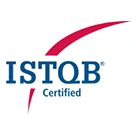1. Appium


Mobile apps dominate today’s digital ecosystem. Businesses must ensure their apps run smoothly, deliver great user experiences, and meet customer expectations. Testing is a key step to achieving this. But with so many frameworks available, choosing the right one can feel like navigating a maze. Let’s break down five popular mobile app testing frameworks and explore their pros, cons, and ideal use cases.

Appium is an open-source framework that supports cross-platform mobile app testing. It enables testers to write a single script and use it across both Android and iOS platforms.
Compatible with multiple programming languages like Java, Python, and C#.
Works seamlessly with native, hybrid, and mobile web apps.
Offers flexibility as it integrates with other tools like Selenium.
Slow test execution compared to other frameworks.
Requires a deep understanding of app structures for complex testing.
Ideal for businesses offering apps on both Android and iOS.
Suitable for companies using mobile app performance testing to analyze speed and reliability.

Robot Framework is a keyword-driven testing tool used for both manual and automation testing. It is popular for its ease of use and extensibility.
Simple syntax, making it beginner-friendly.
Offers built-in libraries for various testing needs.
Compatible with Python, which makes customization easier.
Limited community support compared to Appium or Selenium.
Not ideal for testing apps with advanced UI functionalities
Best for businesses needing mobile app testing services for straightforward apps.
Works well for companies starting with automated testing.

Calabash is an open-source testing framework specifically designed for Android and iOS applications. It is known for its simplicity in writing automated acceptance tests.
Easy to set up and start testing with.
Allows test scripts to be written in plain English using Cucumber.
Good for collaboration between testers and non-technical stakeholders.
Limited support for complex applications.
Requires additional tools for advanced functionality.
Excellent for companies looking to involve non-technical team members in testing.
Suitable for app testing tools for Android and simple iOS apps.

Espresso is a Google-backed framework tailored for Android UI testing. It’s a favorite among developers for its speed and precision.
Fast and reliable UI testing for Android apps.
Integrates directly with Android Studio.
Supports automated testing during development, saving time.
Android-only support, making it less versatile.
Lacks integration with other tools.
Perfect for businesses focusing solely on Android apps.
Ideal for mobile app performance testing during the development phase.

XCTest is Apple's official testing framework for iOS applications. It is highly efficient for developers working within the Apple ecosystem.
Deep integration with Xcode, Apple’s development environment.
Offers advanced features like parallel test execution.
Provides detailed performance metrics.
Works only for iOS apps, limiting cross-platform testing.
Has a steeper learning curve for beginners.
Best for companies focusing on iOS app development.
Excellent for iOS app testing tools when optimizing app performance
When deciding on a testing framework, consider the following factors:
App Type: Is it native, hybrid, or web-based?
Platform: Do you need Android, iOS, or both?
Team Expertise: Does your team have coding experience, or do you need a more visual tool?
Budget and Resources: Open-source options like Appium may be cost-effective, but they often require skilled testers.
If you're still unsure, consulting professional mobile app testing services like Vervali Systems can help you find the best fit for your business.
Selecting the right mobile app testing framework depends on your app’s requirements, your team’s capabilities, and the user experience you aim to deliver. Each framework comes with unique strengths and limitations, and understanding these is crucial for making an informed decision.
If you’re looking for professional support, Vervali offers top-notch mobile app testing services tailored to your business needs. Whether you’re building for Android, iOS, or both, our team can ensure your app is bug-free and ready for market.

Recent Articles

12+ years Software Testing Services
250+ Professionals Onboard
ISTQB-certified Test Engineers
ISO 27001-Certified
Testing Centre of Excellence



